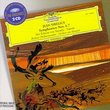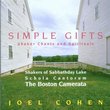Very enjoyable recording.
Billyjack D'Urberville | 06/11/1999
(4 out of 5 stars)
"I find this recording very enjoyable. I am impressed with the quality of the singing and the serene, contemplative (and at times mournful) nature of the music. Recommended for anyone who enjoys chant."
Genuine Time Travel
Billyjack D'Urberville | USA | 09/28/2005
(5 out of 5 stars)
"The Hillier Theatre of Voices here delivers about the closest equivilent of time travel you could imagine -- 10 monophonic songs from the abbeys of the 11th and 12th centuries, including 6 by the famous Peter Abelard. Occasionally accompanied by the light touch of a vielle, the spare but strong voices sound as if they are coming from out of a great space, yet the recording quality for lead voices is always, at the same time, magically intimate. The effect is an incredible dimensionality made from the very simplest parts.
Full Latin/English texts are provided for all these beautiful songs, along with a succinct introduction and three relevant illustrations. All in all, an important contribution to a full understanding and recovery of this most important historical juncture."
Powerful simplicity
FrKurt Messick | Bloomington, IN USA | 10/15/2005
(5 out of 5 stars)
"Some of the earliest pieces of Christian music are the various kinds of chant. These hearken back to synagogue singing; there were various kinds of chant, including Gregorian, Old Roman, Mozarabic, Cistercian and Anglican chant. These tend toward the monophonic, singing with a single 'tune' or lone. They are generally without regular beats or set meters. Of the different kinds of chant, Gregorian is the most famous and popular. When the monks of the monastery of Santo Domingo de Silos topped the charts in the 1990s, there was a flood on the market of the chant, chansons, motets, polyphony and all sorts of other kinds of music.
Much of what people took for being 'chant' was not in fact chant at all. However, this disc is pure chant. This is simple, monophonic form was not without variation, however. This particular disc shows some of that difference.
According to scholar Patrick Kavanaugh, 'there are no parallels to chant in the history of music in terms of its longevity, importance or influence.' Chant is generally without regular beats or meters, so different communities will develop their own sense of the chant. Chant can be designated as syllabic or melismatic, meaning that each note will be a different syllable for the former, or extended melodies on the same syllable for the later. Most of what is commonly understood as chant is melismatic, and that is what is represented here on this disc.
The work on this disc comes from the Codex Las Huelgas, compiled in Spain around 1300, and contains examples of music from around Christendom of the preceding two centuries. This included the work of Peter Abelard, gifted scholar and theologian, who also was a musician. He composed hymns and songs for the abbey of the Paraclete, where his former lover Heloise had become abbess; Abelard himself was at the abbey of St. Denis, made famous around the world as the birthplace of Gothic architecture.
Some of Abelard's texts were thus meant to be sung by women, as the Theatre of Voices does here. Others were meant for monks, or could be sung by either gender. Abelard's particular genius is seen in hymns such as 'O quanta qualia' and his laments (planctus), of which half a dozen survive.
One may notice underneath the monophonic chant a vocal drone, a tone that establishes a sonic grounding against which the songs are sung. There is also a vielle on occasion.
The Theatre of Voices was founded by Paul Hillier, who for a time was in my community of Bloomington, Indiana, directing one of my favourite institutions here, the Early Music Institute. Hillier has a long history and worldwide reputation of working with a diverse range of music. The Theatre of Voices is itself a flexible group in terms of numbers and composition, depending upon the needs of the particular production. For this particular piece, the Pro Arte Singers joined in the production. This was recorded at the School of Music in Bloomington in 1997, in the then-newly christened Auer Recital Hall.
This is a marvelous recording, and one that exceeds expectations nicely.
"
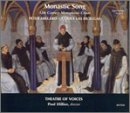

 Track Listings (10) - Disc #1
Track Listings (10) - Disc #1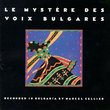

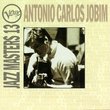
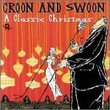
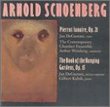
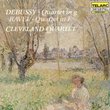
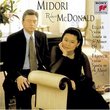
![Brahms: Ein deutsches Requiem [A German Requiem]](https://nationalbookswap.com/cd//m/23/8723/6058723.jpg)
